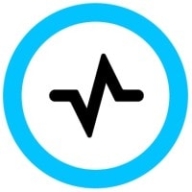

Splunk Enterprise Security and Graylog Enterprise both operate in the domain of log management and data analytics. Based on feature depth, Splunk appears to have an upper hand, boasting extensive capabilities, especially for large-scale operations.
Features: Splunk Enterprise Security provides robust features including log aggregation, log management, and advanced threat hunting. It integrates seamlessly with various tools, supports large-scale operations, and offers comprehensive data analytics. In contrast, Graylog Enterprise focuses on simplicity and is open-source, offering core functionalities like log management and basic search capabilities, making it user-friendly and affordable.
Room for Improvement: Splunk is critiqued for its high costs, complex data processing, and the need for better user interface updates. Archival data management and AI integrations are additional areas for enhancement. Meanwhile, Graylog needs improvements in alerting and visualization capabilities, with users desiring more intuitive dashboards and flexible alert thresholds.
Ease of Deployment and Customer Service: Splunk supports wide-ranging deployments across on-premises and cloud setups but comes with a steep learning curve and a complex initial setup. Customer support is mixed, with reports of delays. Graylog is straightforward to deploy, especially on-premises, but relies heavily on community support, which can be challenging for users needing immediate assistance.
Pricing and ROI: Splunk's pricing is based on data volume, which can be prohibitive to smaller organizations despite extensive capabilities justifying the cost for larger entities. Graylog, being open-source, is more cost-effective, offering a reasonable ROI for smaller organizations needing efficient log management without the extensive features of Splunk.
| Product | Market Share (%) |
|---|---|
| Splunk Enterprise Security | 7.7% |
| Graylog Enterprise | 6.0% |
| Other | 86.3% |


| Company Size | Count |
|---|---|
| Small Business | 8 |
| Midsize Enterprise | 4 |
| Large Enterprise | 7 |
| Company Size | Count |
|---|---|
| Small Business | 110 |
| Midsize Enterprise | 50 |
| Large Enterprise | 257 |
Graylog Enterprise, recognized for log collection, real-time search, and enriched data handling, offers an open-source framework that integrates seamlessly with Elasticsearch. Its user-centric interface streamlines data correlation and log aggregation, supporting both backend services and comprehensive monitoring needs.
Graylog Enterprise stands out for its stability and powerful log management capabilities, facilitating efficient log aggregation, real-time updates, and data analytics. Users benefit from its plugin-based alerting, user-friendly interface, and support for microservices, including Docker integration. The ability to search in detail, flexible API integration, and data enrichment features are highly valued. Challenges include collector application issues, desired visualization enhancements, and authentication integration improvements. Users seek advancements in UI customization, backup functions, and easier rule creation.
What are Graylog Enterprise's most important features?In industrial use, Graylog Enterprise is crucial for audit trailing in financial sectors, facilitating security event identification and error monitoring. Backend teams leverage real-time analytics for swift issue resolution, while developers appreciate the comprehensive log visualization enabled by Docker integration for microservice management.
Splunk Enterprise Security delivers powerful log management, rapid searches, and intuitive dashboards, enhancing real-time analytics and security measures. Its advanced machine learning and wide system compatibility streamline threat detection and incident response across diverse IT environments.
Splunk Enterprise Security stands out in security operations with robust features like comprehensive threat intelligence and seamless data integration. Its real-time analytics and customizable queries enable proactive threat analysis and efficient incident response. Integration with multiple third-party feeds allows detailed threat correlation and streamlined data visualization. Users find the intuitive UI and broad compatibility support efficient threat detection while reducing false positives. Despite its strengths, areas such as visualization capabilities and integration processes with cloud environments need enhancement. Users face a high learning curve, and improvements in automation, AI, documentation, and training are desired to maximize its potential.
What Are the Key Features of Splunk Enterprise Security?In specific industries like finance and healthcare, Splunk Enterprise Security is instrumental for log aggregation, SIEM functionalities, and compliance monitoring. Companies leverage its capabilities for proactive threat analysis and response, ensuring comprehensive security monitoring and integration with various tools for heightened operational intelligence.
We monitor all Log Management reviews to prevent fraudulent reviews and keep review quality high. We do not post reviews by company employees or direct competitors. We validate each review for authenticity via cross-reference with LinkedIn, and personal follow-up with the reviewer when necessary.